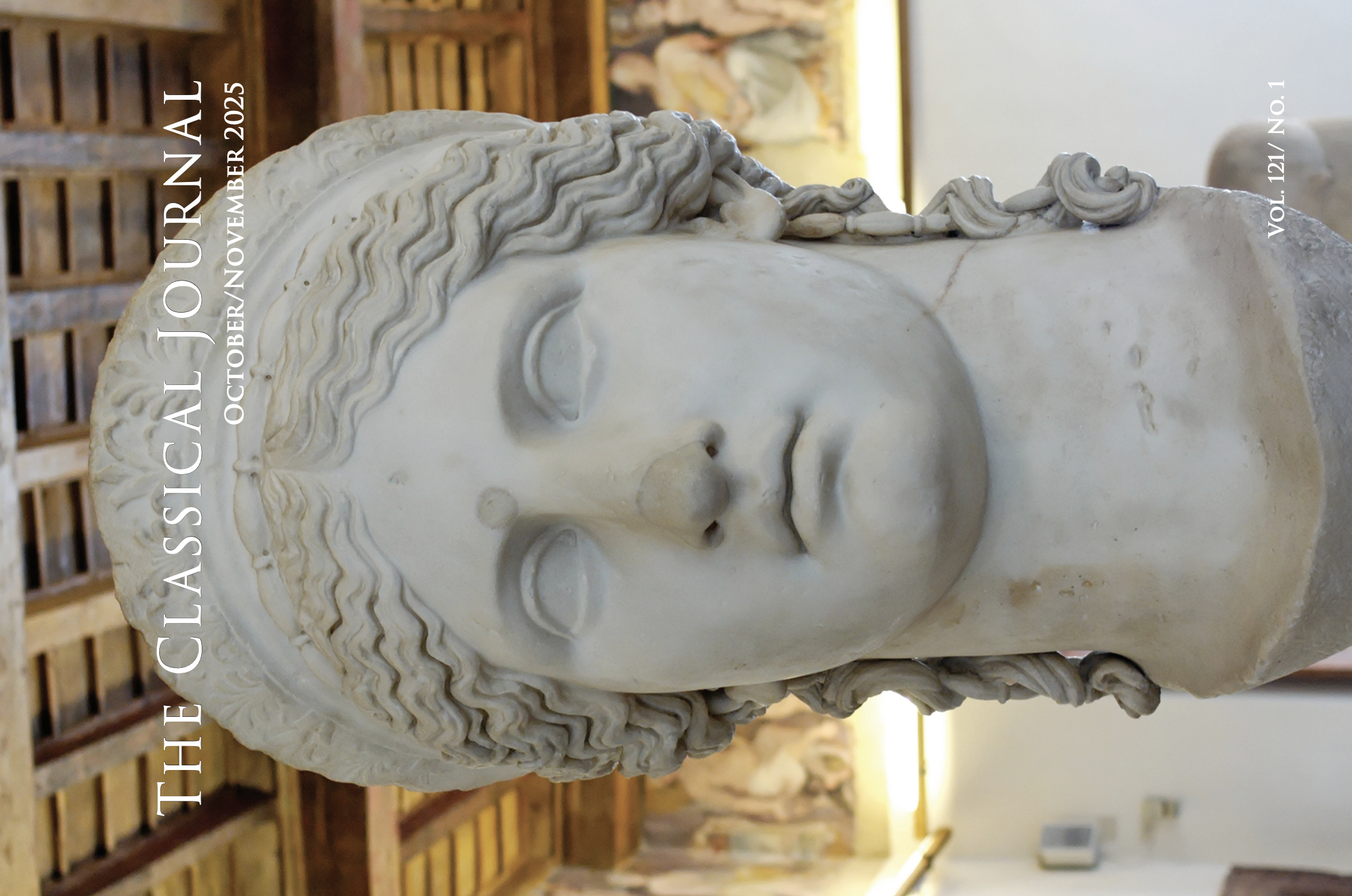The following articles are contained in CJ
101.3
Abstracts of Articles
KANDAULES' WIFE, MASISTES' WIFE: HERODOTUS' NARRATIVE STRATEGY IN SUPPRESSING NAMES OF WOMEN (Hdt. 1.8-12 and 9.108-13)
Herodotus frames his Histories with the logoi of Kandaules and Masistes: tales of tyrannical eros that compare in a number of well-documented ways. Herodotus' suppression of names for both Kandaules' and Masistes' wives has received little comment, however. By juxtaposing evidence from other Herodotean narratives concerning naming in general and the anonymity of women with evidence from Athenian oratory and comedy, I argue that Herodotus' suppression of names for these two wives is purposeful. The women's anonymity marks them with respect and exonerates them from culpability in the ultimate demise of the tyrants associated with them.
A HOMERIC ALLUSION AT ARISTOPHANES WASPS 1029-37
Building on D.M. MacDowell's observation of metrical similarity in Wasps 1035 and Iliad 6.181, this article finds additional signs of verbal patterning on the model of the Homeric passage that point to a more significant relationship between the surrounding accounts of Aristophanes' heroic encounter with Kleon and of Glaukos' duel with Diomedes. Aristophanes playfully overturns the peaceful outcome of the epic encounter to give force to his renewed antagonism with Kleon, asserted also in the second parabasis.
HOLDING HANDS IN THE ARGONAUTICA
Apollonius thematically uses and develops three hand gestures familiar from earlier Greek art and literature. Lightly touching the fingers accompanies requests, grasping the right wrist or hand reinforces sexual dominance, and firmly taking the hand supports a promise of help made from a superior position. Often these gestures support the primary sense of an encounter, but in several important episodes, especially the meeting of Jason and Medea at the temple of Hecate, they undercut or complicate the dominant understanding of the relationship between the characters.
LOVE AS ILLNESS: POETS AND PHILOSOPHERS ON ROMANTIC LOVE
I contrast a critique of love by the philosophers (namely Cicero and Lucretius) as a kind of illness that needs to be cured, with the celebration of love in elegiac poetry. The philosophers incorporate the love poets' language and imagery as a means of strengthening their attack, yet the poets do the very same thing by adopting the philosophers' attitudes, only to reject their negative conclusions. The elegists relish their emotional condition and very self-consciously make overpowering passion the pretext for their poems. What we find is the possibility of a distinctive poetic treatment of the passions and a response to philosophy.


